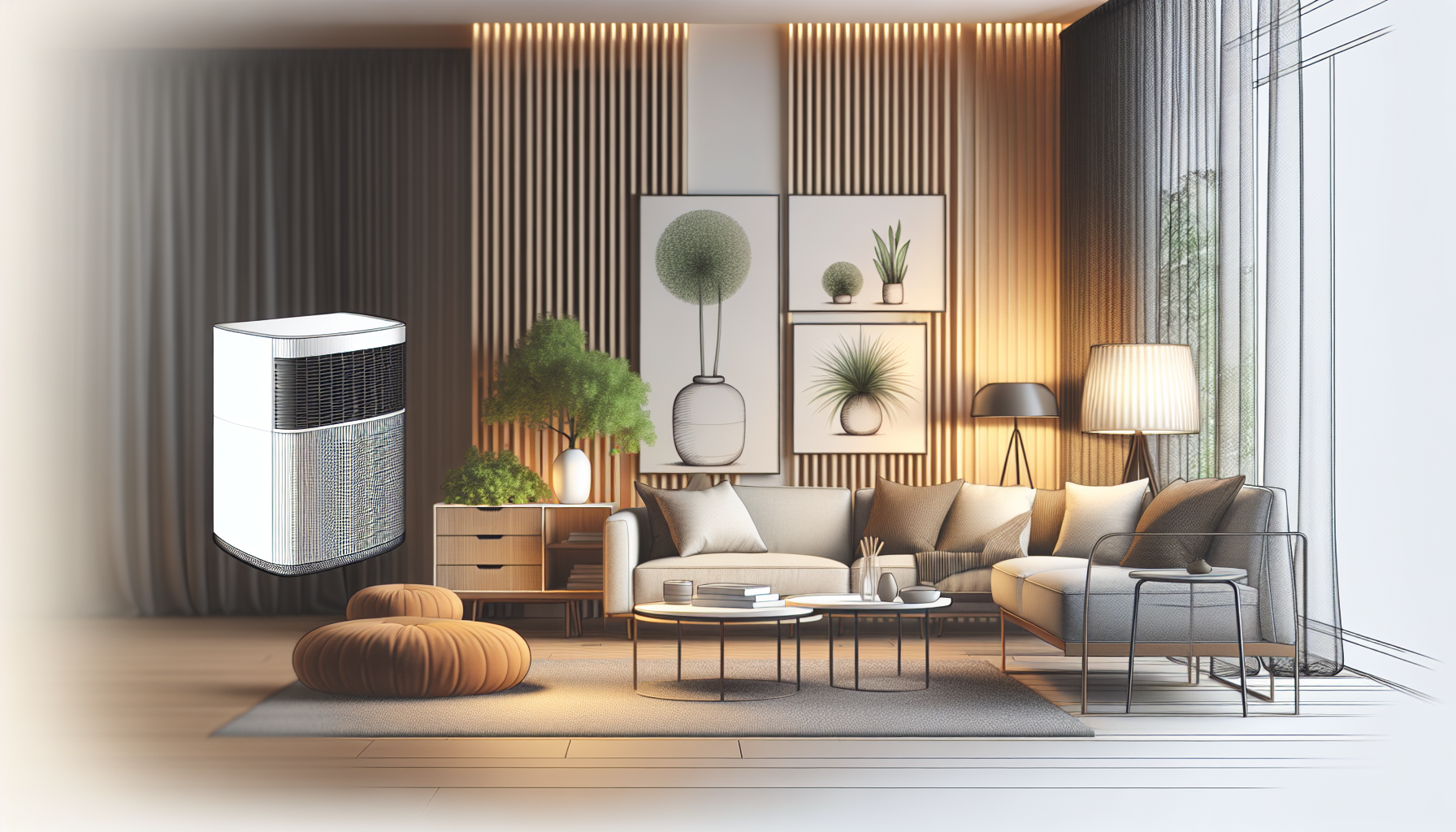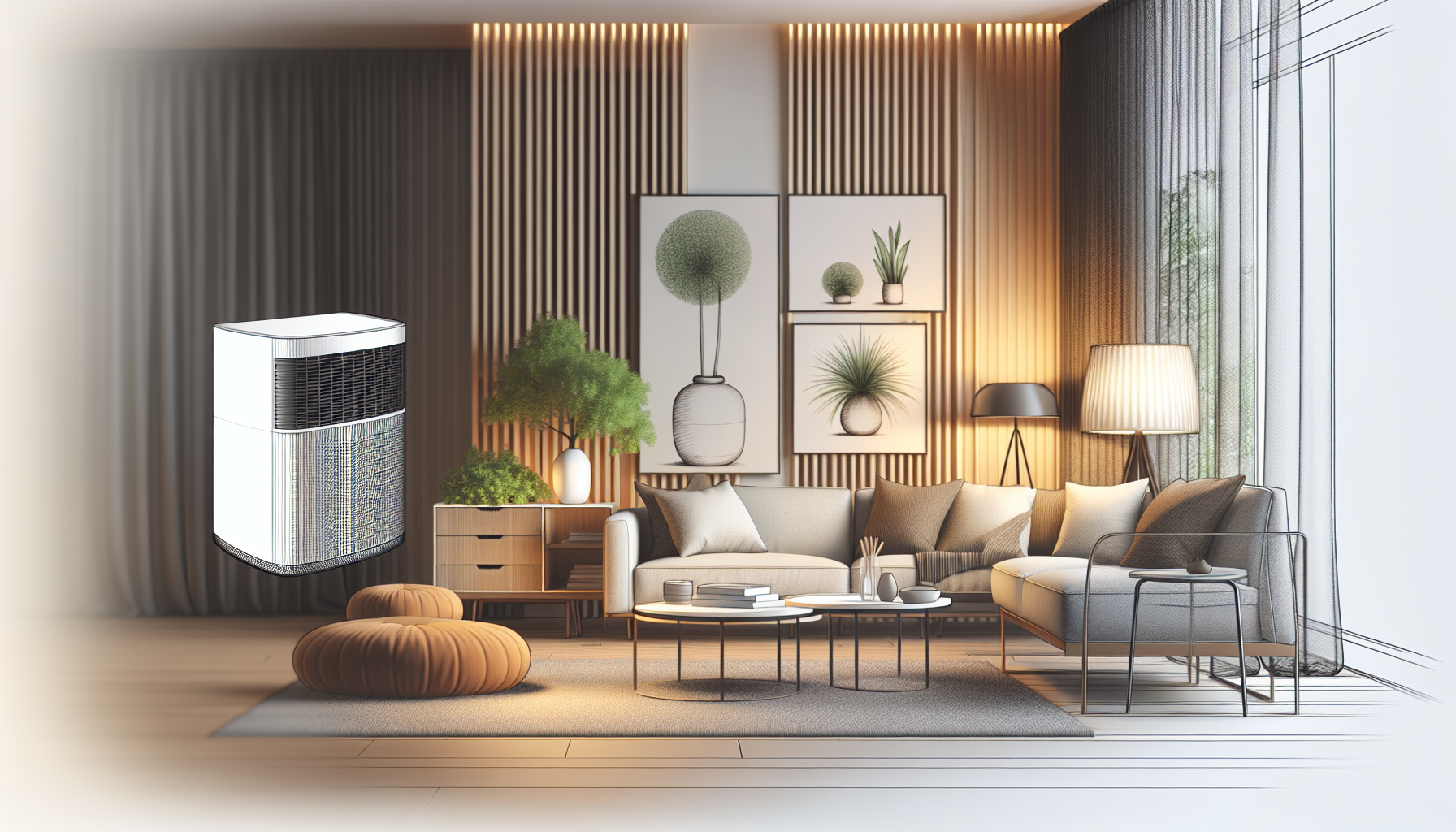Air purifiers have gained significant popularity in recent years as people become more concerned about their indoor air quality. These devices are designed to filter out pollutants and allergens, providing cleaner and fresher air to breathe in. While the benefits of an air purifier are widely acknowledged, it is essential to consider if there are any downsides to using one. In this article, we will explore whether there are any cons to an air purifier and provide you with a balanced perspective to help you make an informed decision.
Maintenance
Regular filter replacement
One of the cons of owning an air purifier is the regular need for filter replacement. Most air purifiers work by filtering out pollutants and allergens from the air, trapping them in a filter. Over time, these filters can become clogged with dust, pet dander, and other particles, reducing their effectiveness. It is recommended to replace the filters every few months, depending on the manufacturer’s guidelines. This can be an added expense and require regular maintenance to ensure that the air purifier continues to work efficiently.
Cleaning requirements
In addition to filter replacement, air purifiers may also require regular cleaning to remove dust and debris that accumulates on their surfaces. This can involve wiping down the exterior and interior components, such as the fan and vents. Some models may even require disassembly for a thorough cleaning. While it is important to maintain a clean air purifier to prevent the buildup of pollutants, this cleaning process can be time-consuming and may require additional effort on your part.
Effectiveness
Limited coverage area
One limitation of air purifiers is their coverage area. Most air purifiers are designed to effectively clean the air in a specific room or area. If you have a large home or multiple rooms you want to purify, you may need to purchase multiple units to achieve the desired results. This can be costly and may take up valuable space in your home.
Ineffectiveness against certain pollutants
While air purifiers can effectively remove common allergens such as dust, pollen, and pet dander, they may not be as effective against certain pollutants, such as volatile organic compounds (VOCs) and gases. These types of pollutants can be emitted from household items like cleaning products, furniture, and paint. While some air purifiers claim to target and remove VOCs, their effectiveness may vary. It is important to research and select an air purifier specifically designed to effectively remove the pollutants you are concerned about.
Noise
Loud operation
Another potential downside of air purifiers is their noise level. Depending on the model and fan speed, some air purifiers can produce a noticeable amount of noise. This can be particularly troublesome if you plan to use the air purifier in a bedroom while sleeping or in a quiet workspace. The constant noise from the air purifier may cause disturbance and hinder your ability to relax or concentrate.
Disturbance during sleep or work
In addition to the noise level, the constant airflow and fan operation of an air purifier may also cause disturbance during sleep or work. Some individuals may find the sensation of moving air or the presence of a fan distracting and uncomfortable. If you are sensitive to airflow or find it difficult to sleep or work with any noise or disturbance, it is important to consider these factors before investing in an air purifier.

Energy Consumption
Increased electricity usage
Air purifiers require electricity to operate, and this can lead to an increase in energy consumption. Depending on the model and usage time, the energy usage of an air purifier can vary. However, running an air purifier continuously or at higher fan speeds can contribute to higher electricity bills. It is important to consider the potential increase in energy consumption and its impact on your overall utility costs before purchasing an air purifier.
Higher utility bills
As mentioned earlier, the increased electricity usage of an air purifier can result in higher utility bills. This additional expense should be taken into consideration, especially if you are on a tight budget or looking to reduce your energy consumption. While the benefits of clean air are important, it is essential to weigh the cost against the potential increase in utility bills.
Initial Cost
Expensive upfront investment
One of the drawbacks of air purifiers is their initial cost. Depending on the brand, features, and filtration technology, air purifiers can range in price from affordable to quite expensive. Higher-end air purifiers often boast advanced features and additional filtration layers, which can contribute to a higher upfront cost. If you are on a limited budget or hesitant to make a significant investment, it may be challenging to find an air purifier that meets both your needs and your budget.
Additional expenses for multiple units
If you have a large home or multiple rooms that require air purification, you may need to purchase multiple units to effectively cover each area. This can quickly add up in terms of cost, as each air purifier will require its own initial investment. Additionally, the maintenance and filter replacement costs will be multiplied for each unit. It is important to factor in these additional expenses when considering the purchase of multiple air purifiers.
Ozone Emission
Potential production of ozone
While most air purifiers on the market today are designed to be safe and effective, some models may emit small amounts of ozone as a byproduct. Ozone is a gas that can be harmful when inhaled in high concentrations. Although the amount of ozone emitted by air purifiers is typically within safe limits, individuals with respiratory conditions or sensitivity to ozone may experience discomfort or health risks. It is crucial to research and choose an air purifier that is certified to produce minimal or no ozone emissions if you have concerns about this potential risk.
Health risks associated with ozone exposure
Exposure to high levels of ozone can have detrimental effects on respiratory health, causing symptoms such as coughing, wheezing, throat irritation, and shortness of breath. Prolonged or repeated exposure to ozone may lead to more severe respiratory issues. While the ozone emissions from most air purifiers are minimal, it is important to be aware of this potential risk and choose an air purifier that prioritizes safety and low ozone emission.
Air Purifier Types
Different types for different needs
There are various types of air purifiers available on the market, each offering different features and filtration technologies. Some common types include HEPA filters, activated carbon filters, UV filters, and ionizers. Each type targets specific pollutants and has its own strengths and limitations. It is important to understand your specific air quality needs and research the different types of air purifiers to select the one that best suits your requirements.
Difficulty in selecting the right type
The wide variety of air purifier types can make it challenging to select the right one for your needs. With so many options available, it can be overwhelming to navigate through the features, technologies, and specifications. Understanding the pros and cons of each type, as well as considering your specific air quality concerns, can help you make an informed decision. Researching customer reviews and seeking expert advice can also provide valuable insights to assist you in selecting the most suitable air purifier for your home.
Chemical Sensitivities
Chemicals used in air purifiers
Air purifiers often utilize various chemicals and materials in their filtration systems. For example, activated carbon filters contain charcoal, which helps to absorb odors and capture harmful gases. While these chemicals are generally safe and effective, individuals with chemical sensitivities or allergies may experience reactions or discomfort. It is essential to read the product specifications and consult with a healthcare professional if you have known sensitivities or allergies to ensure that the materials used in the air purifier will not cause any adverse reactions.
Triggering of allergies or sensitivities
Ironically, air purifiers themselves can sometimes trigger allergies or sensitivities in individuals who are already prone to such reactions. Exposure to certain particles or chemicals used in the filtration process may cause respiratory symptoms, skin irritation, or other allergic responses. If you have pre-existing allergies or sensitivities, it is important to carefully consider the potential risks and choose an air purifier that minimizes the chance of triggering any adverse reactions.
Maintenance Hassles
Time-consuming cleaning procedures
As mentioned earlier, air purifiers require regular cleaning to remove dust and debris that collects on their surfaces. This cleaning process can be time-consuming, especially if the air purifier has intricate internal components that need to be disassembled for thorough cleaning. If you have a busy schedule or prefer low-maintenance household appliances, the need for regular, detailed cleaning may be a potential hassle to consider before purchasing an air purifier.
Difficulty finding replacement filters
Another maintenance hassle with air purifiers is the potential difficulty in finding and purchasing replacement filters. Each air purifier model usually requires a specific type of filter, and they may not always be readily available or easily accessible. If you are unable to find replacement filters in a timely manner, it can impede the effectiveness of your air purifier and cause frustration. It is important to research the availability and cost of replacement filters before purchasing an air purifier to ensure that you can easily maintain its efficiency.
False Sense of Security
Neglecting other air quality improvement measures
While air purifiers can be effective in reducing the presence of airborne pollutants, they should not be seen as a standalone solution to improving air quality. It is essential to understand that air purifiers alone cannot eliminate all sources of pollutants in your home. Neglecting other air quality improvement measures, such as proper ventilation, regular cleaning, and minimizing the use of harmful substances, can limit the overall effectiveness of an air purifier. It is important to use air purifiers as a part of a comprehensive approach to improving air quality rather than relying solely on their effectiveness.
Relying solely on air purifier effectiveness
Lastly, a potential con of using air purifiers is the risk of relying solely on their effectiveness without addressing the root causes of air pollution. While air purifiers can reduce the presence of pollutants in the air, they cannot eliminate the sources that are generating those pollutants. By solely relying on an air purifier, you may neglect important actions such as proper ventilation, maintaining cleanliness, and reducing exposure to harmful chemicals or allergens. It is crucial to view air purifiers as a complementary tool and prioritize a holistic approach to improving air quality in your environment.
In conclusion, while air purifiers offer several benefits in terms of improving indoor air quality, they do come with some cons that should be considered. Maintenance requirements, limited coverage area, potential noise and disturbance, increased electricity usage, higher upfront cost, potential ozone emissions, and the selection of the right type are factors to evaluate before investing in an air purifier. Additionally, individuals with chemical sensitivities or allergies should be cautious about the materials used in air purifiers. Maintenance hassles, such as cleaning procedures and finding replacement filters, can also be potential downsides. Finally, it is important to understand that air purifiers should not be relied upon as the sole solution for improving air quality and neglecting other important measures. By carefully considering these factors, you can make an informed decision to determine if an air purifier is the right choice for you and your home.

